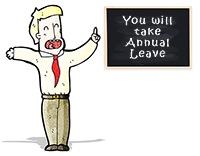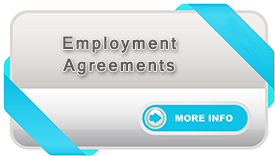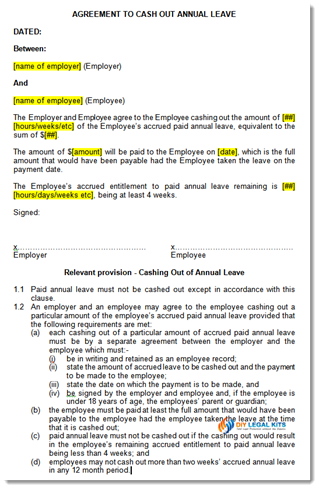In 2015, the Fair Work Commission released a series of changes following its four-yearly review of modern awards. The changes deal predominately with the issue of excessive annual leave accrued by employees.
Numerous employer bodies sought the changes. It was noted that prior to the operation of the NES and modern awards, ‘Federal and State legislation and awards commonly provided employers with a right to direct employees to take annual leave’. It was acknowledged that issues inherent in the excessive accumulation of annual leave included the compromised health and safety of employees and the significant issues posed for employers.
Based on the information before it, the Full Bench agreed to insert model clauses into modern awards to include mechanisms to deal with excessive annual leave accrual.
Direction to employees to take paid annual leave

Employers can direct an employee to take accumulated annual leave.
Employers can direct employees who have accrued excessive annual leave, to take one week or more paid annual leave. The remaining annual leave entitlement must be not less than four weeks.
Before issuing the direction, the employer must first arrange a meeting with the employee, with the aim of genuinely trying to agree on a plan to reduce or eliminate the excessive leave accrual.
After the meeting, if the employer issues a leave direction to the employee, the employee may still make their own leave request as if the direction had not been given. In this case, the employer must not take the direction into account when deciding whether to agree to the request, and must not unreasonably refuse.
If the employer gives no direction following the meeting, then the employee may give the employer written notice of his or her intention to take the excessive leave. Such inclusions in the new model term give the employee a certain degree of control over when they will take the leave.
Cashing out of annual leave
The Full Bench agreed to update all modern awards to include a new model term dealing with the cashing out of annual leave. It was noted that, based on the information before the Full Bench, there appears to be significant demand for a cashing out provision.
The new model term provides that an employer and employee can agree to cash out accrued paid leave.
Four safeguards have been incorporated into the provision, as follows:-
- Each cashing out must be by separate agreement in writing;
- The amount must be equal to the full amount the employee would have received as if he or she had taken the leave at the time it is cashed out;
- Leave must not be cashed out if it would result in the remaining annual leave entitlement being less than four weeks;
- The maximum amount that can be cashed out is two weeks’ worth of leave in any 12-month period.
An employer cannot place undue influence or pressure on an employee to cash out his or her leave entitlement nor can an employer knowingly mislead the employee about his or her rights under this new provision.
![]() Cashing Out Agreement Template
Cashing Out Agreement Template
Taking annual leave in advance
The new changes allow an employer and employee to agree to paid leave in advance of the employee having actually accrued the leave entitlement. The agreement must be put in writing. Should the employment end before the employee has had the time to accrue the leave, the employer may deduct the balance owing from any monies due to the employee on termination.
Download Fair Works Annual Leave Fact Sheet
The Fair Work Commission
The Fair Work Commission considered other topics such as annual close-downs and purchased leave, but made no changes in relation to those issues for the time being.
For more detailed information on the award changes and other issues discussed by the Fair Work Commission refer to Summary – 4 yearly review of modern awards. You can also find a link to the full decision here.
Other Resources
Fair Work Minimum Wage Decision



